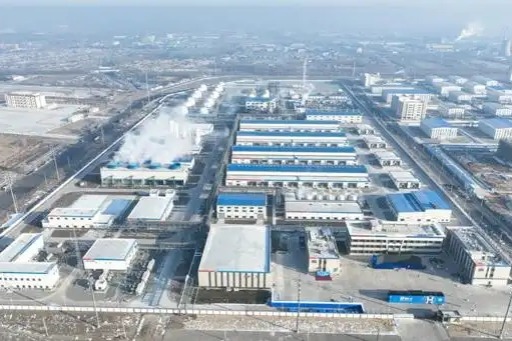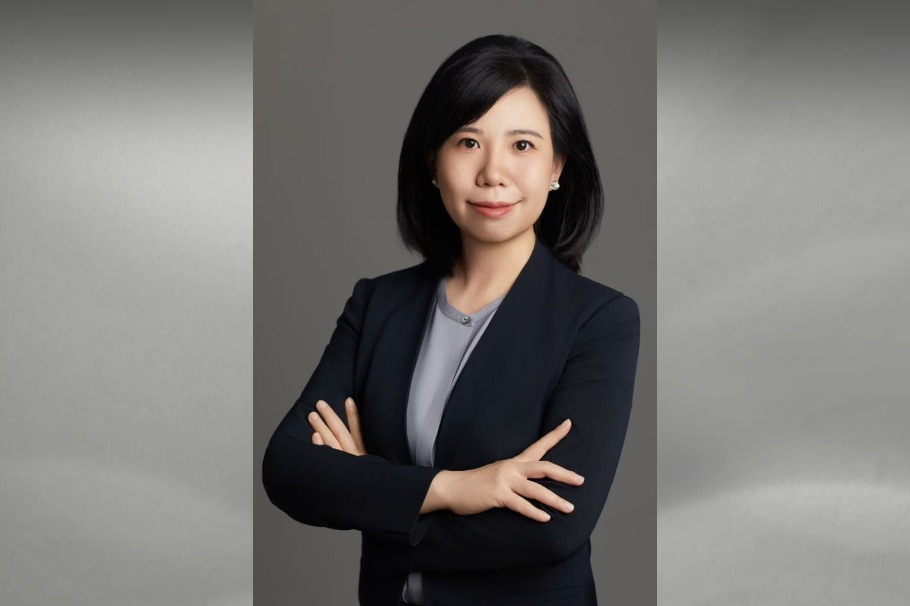IN BRIEF (Page 24)

| A visitor tries brandy at the Seventh International Alcoholic Beverage Expo in Guiyang, Guizhou province. The four-day expo, which opened on Sept 9, hosted a "global wine carnival" at which wine chateaus and distributors presented new products. Yang Jun / For China Daily |
Country plans wide use of biofuel by 2020
China has set a 2020 target for rolling out ethanol in gasoline nationwide for cars as part of its effort to clean up pollution and optimize the country's energy mix. The plan was unveiled as the country is promoting the use of biofuels, an ideal alternative to fossil fuels, according to the National Energy Administration. According to a plan jointly released by the National Development and Reform Commission, the National Energy Administration and the Ministry of Finance, China will implement nationwide use of ethanol in gasoline by 2020, while targeting the large-scale production of cellulose ethanol and advanced biofuel technologies by 2025. It's the first time the government has set a timeline for promoting the biofuel, known as E10, referring to gasoline with an ethanol content of 10 percent.
Beijing to revise governance rules
China is revising regulations on corporate governance of listed companies, following international standards, according to the nation's securities watchdog. The China Securities Regulatory Commission will join the corporate governance committee at the Organization for Economic Co-operation and Development, approved by the State Council, said Liu Shiyu, chairman of the CSRC, on Sept 11 when he met OECD Secretary-General Angel Gurria. As A-shares has been included into the MSCI Index and the connections between the mainland and Hong Kong capital market have been strengthened, the new standards are required as China further opens up its capital market, said Liu. Higher corporate governance standard will encourage the improvement of companies' quality as the foundation of capital market development, he added.
Zhongwang acquires Germany's Alunna
Hong Kong-listed China Zhongwang Holding announced the acquisition of Germany's Aluminiumwerk Unna AG (Alunna) on Sept 13, as its latest attempt to grab a share of the global market. Alunna, a well-established aluminium extruder based in Unna, Germany, provides high-end extrusion products, mainly seamless tubes, to such world-leading manufacturers as Airbus, Boeing, Bombardier, Mercedes-Benz and BMW. The deal, via a wholly owned subsidiary, is the company's first overseas purchase and allows it to own a 99.72 percent stake of Alunna. The deal's value has yet to be disclosed.
Mercedes-Benz to recall cars in China
Mercedes-Benz (China) began recalling 39,458 imported cars in China on Sept 8 over problems with their power steering and engine control modules, according to China's consumer quality authority. Mercedes-Benz (China) Automotive Sales Co has filed a plan to recall more than 32,000 GL-class cars and GSL and GLE sport utility vehicles manufactured between September 2015 and June 2016, according to the General Administration of Quality Supervision, Inspection and Quarantine. The connectors for these cars' power steering control modules were not sealed, so moisture can disrupt signal transmission and lead to failures of the power steering devices. The company also started to recall more than 7,300 GLE SUVs manufactured between February 2015 and April 2017 due to software defects with their engine control modules that could cause stalling.
Mega road project begins in Zambia
Zambia launched construction on Sept 8 of a China-funded mega road project that connects the southern and central parts of the country to mining towns in the Copperbelt province. The construction of the 321-kilometer Lusaka-Ndola dual carriageway, including bypass roads in Kabwe and Kapiri Mposhi, and 45 kilometers of the Luanshya-Fisenge-Masangano Road will be done by China Jiangxi Corp for the International Economic and Technical Cooperation at a cost of $1.2 billion borrowed from China's Exim Bank. The road, to be built in four years, will create more than 3,000 jobs for local people. Zambian President Edgar Lungu, in remarks delivered during the launch of commissioning works in central Zambia's Chisamba district, said the project will present another modern symbol of the friendship between Zambia and China. The Tanzania-Zambia Railway was constructed in the 1970s.
More freight trains provide European link
China's largest land border port, Manzhouli, has seen growth of China-Europe freight trains in the first eight months of this year. A total of 849 inbound and outbound trains connecting China and Europe passed through Manzhouli in China's Inner Mongolia Autonomous Region from January to August, while the number for all of 2016 was 846, according to port authorities. The port, which borders Russia to the north and sits close to Mongolia to the west, saw its first container train in September 2013, heading from East China's Suzhou to Poland. The port has been increasingly busy under the Belt and Road Initiative. Currently, it has more than 30 cross-border train routes. During the first eight months, the number of inbound and outbound freight trains connecting the southwestern municipality of Chongqing and Europe was 412, up by more than 70 percent from the same period last year, according to Chongqing customs. The trains have also carried a growing variety of cargo. In the past, the exports were mainly IT products and parts, while now they include machinery, daily necessities and international mail. The imports include cars, auto parts, food and medicine.
Freight train links China with Germany
A freight train chugged out of a railway station in Shenyang, Liaoning province, on Sept 9 heading for Duisburg, Germany. It marked the start of a new freight route stretching more than 9,300 kilometers. The train will pass through Mongolia, Russia and Poland. A single journey takes 17 days, about half the time for a conventional sea voyage. Two trains will depart both Shenyang and Duisburg each week in the beginning, and later increase to five. Cargoes inclulde industrial products from Shenyang and commodities from Japan and South Korea. The service is aimed at boosting trade between Shenyang and Europe.
Fiscal revenue sees slower growth
China's fiscal revenue rose at a slower pace in August, dragged by a sharp decline in nontax incomes, the Ministry of Finance said. Fiscal revenue gained 7.2 percent year-on-year to 1.07 trillion yuan ($165 billion; 138 billion euros; £124 billion) in August, down from the 11.1 percent growth recorded in July, the ministry said on its website. Due to a high comparison base in August 2016, nontax incomes dropped 22.5 percent to 174.5 billion yuan. However, revenue from taxes surged 16 percent year-on-year to 890.7 billion yuan last month, higher than the growth rates for both the first half and July of this year. The strong growth in taxes "is mainly driven by factors including the stabilizing economy and rising prices", the ministry said.
Expo sees $2.8 billion in IoT contracts
Contracts on key projects worth more than $2.8 billion (2.34 billion euros; £2.13 billion ) have been signed at the World Internet of Things Expo in Wuxi, Jiangsu province, involving Xuelang Town, Tencent TUSI IoT Laboratory, and AVIC-Linkage Innovation Center. Over 500 innovation and startup projects have come to seek cooperation with local enterprises and public institutions. More than 500 industry leaders are attending the expo, including foreign and domestic academics, experts in IoT, and entrepreneurs to share their cutting-edge ideas on the development of IoT.
(China Daily Africa Weekly 09/15/2017 page24)































